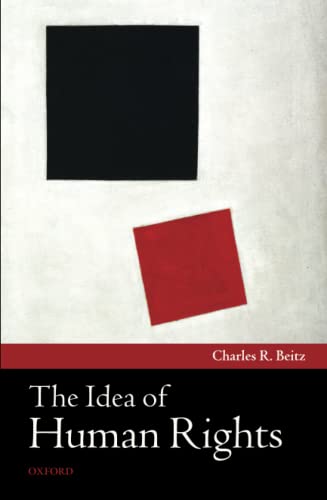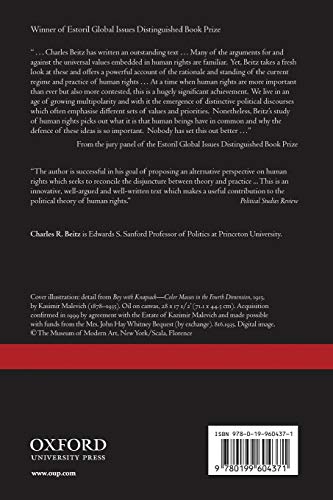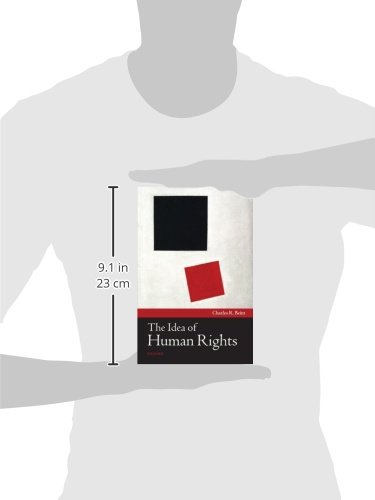Customer Services
Copyright © 2025 Desertcart Holdings Limited




Full description not available
J**S
Useful for background on human rights debates, but not worldview-changing
While this book was of some use for background reading on various debates around what the title suggests -- the Idea of Human Rights -- I found it to be less than satisfactory in terms of helping me conceptualize what human rights mean. I admire the goals that Beitz sets out for himself, and his purposes: in the introduction he says he set off writing this to determine whether skepticism of human rights can be resisted, and because the practice of human rights "is bound to seem puzzling". I agree with this: the Universal Declaration kick started something that has taken off and become quite large, and it's hard to figure out why that has happened. However, I found Betiz's model lacking, both in scope and effectiveness in addressing his self-imposed task. His conclusion is perhaps indicative: he feels that any theory of human rights should be "modest", understood as "responds to contingent historical circumstances", and is just a way to "interpret the normative discipline implicit in the practice" of human rights. In other words, he seems to seek to describe human rights, especially as in national and international legal system; addressing it as something that ordinary people can understand in interpreting human rights with respect to their everyday lives doesn't seem to really be part of the project.The first 50 pages of the book are a summary of the facts of human rights "practice", which is to say a description of how governments, NGOs, and international law used human rights. The next 50 pages or summaries of prior theories of human rights, naturalistic theories (which includes Martha Nussbaum and Morsink, although Morsink's main work on inherent human rights is not cited because it was concurrently released), agreement theories in which human rights are considered almost a form of social contract.Not really satisfied with any of these, Beitz eventually gets to his own theory, or rather "model" as he calls it, on page 109, of a 212 page book, which seemed like a novel in which the plot begins halfway through. Anyway, to summarize his summary, the Beitz model of human rights has three elements: (1) human rights protect against "standard threats" to humans in a modern nation; (2) human rights apply first to the institutions of states; (3) human rights are matters of international concern.The main problem I have with this is that it seems more like just a description of what human rights are, rather than an explanation of why we have them any why some people seem to feel they are more "real" than others. It's not wrong, but it does not immediate strike me as helpful guidance to making the world a better place, which is usually why any one person turns their attention to human rights.Secondly I would object to Beitz's model in that it completely omits individual humans from the picture. They're only implicit, in that they can participate in the political process of their country. In introducing his model, he does mention that he wants to consider "evidence of the public culture of international human rights found in its history and in contemporary public expression", but to me that doesn't seem like that really shows up in the model itself.I'm a person coming to human rights with questions like "if I feel like people living in tents in my city have a right to housing, how does that fit in with the idea of human rights?" or "how does universal healthcare fit in with the idea of human rights?", and this book didn't really have a lot to offer on those questions. It seems almost entirely descriptive, and not in any ways that relate to individuals as they live their lives with respect to human rights; nor does did it give me much insight into why they became a thing in the 19th or 20th century.This book is useful as background reading, perhaps, but I don't feel like I walked away from it with any conceptualizations that help me understand the world more than I did before. For that, in descending order of impact on me personally, three other books I recommend: Nussbaum's Creating Capabilities, Sunstein's Second Bill of Rights, and Morsink's Inherent Moral Rights.
Trustpilot
1 week ago
1 month ago